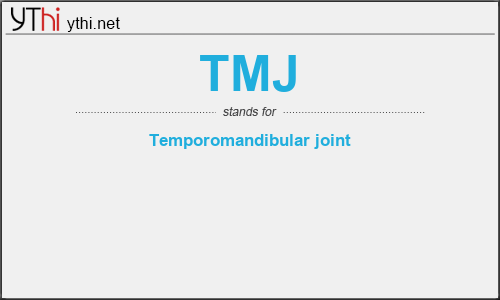What does TMJ mean? What is the full form of TMJ?
The Full Form of TMJ is Temporomandibular joint.
Causes of TMJ disorders include injury to the teeth or jaw, misalignment of the teeth or jaw, teeth grinding or clenching, poor posture, stress, arthritis, and gum chewing. locking of the jaw joint.
The temporomandibular (tem-puh-roe-man-DIB-u-lur) joint (TMJ) acts like a sliding hinge, connecting your jawbone to your skull. You have one joint on each side of your jaw. TMJ disorders — a type of temporomandibular disorder or TMD — can cause pain in your jaw joint and in the muscles that control jaw movement.
The exact cause of a person’s TMJ disorder is often difficult to determine. Your pain may be due to a combination of factors, such as genetics, arthritis or jaw injury. Some people who have jaw pain also tend to clench or grind their teeth (bruxism), although many people habitually clench or grind their teeth and never develop TMJ disorders.
In most cases, the pain and discomfort associated with TMJ disorders is temporary and can be relieved with self-managed care or nonsurgical treatments. Surgery is typically a last resort after conservative measures have failed, but some people with TMJ disorders may benefit from surgical treatments.
TMJ
means
Temporomandibular joint![]()
Translate Temporomandibular joint to other language.


Leave a Reply
You must be logged in to post a comment.